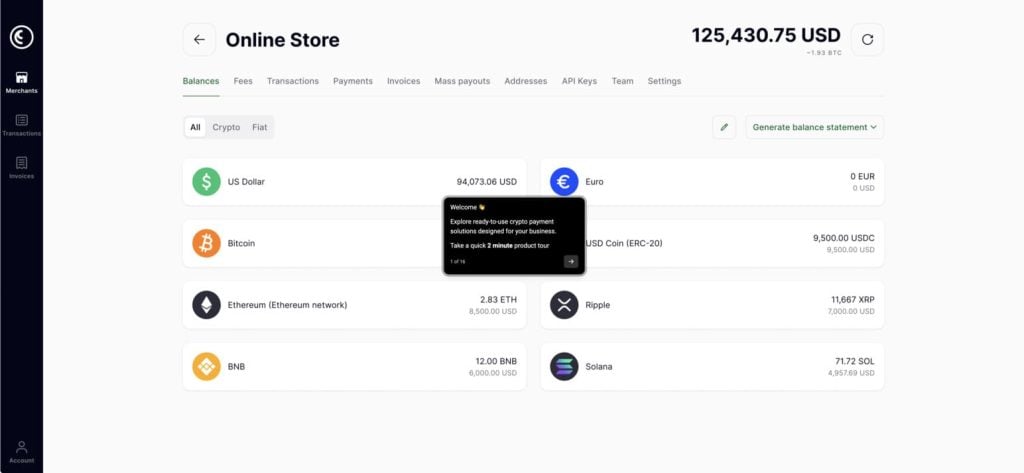What is Cryptocurrency?
Cryptocurrency is a virtual currency that utilizes cryptography for security and operates on decentralized networks, typically based on blockchain technology.
Table of contents:
Cryptocurrency is a form of digital or virtual currency that leverages cryptographic techniques for securing financial transactions and controlling the creation of new units. What distincts cryptocurrencies from regular currencies that is that cryptocurrencies operate on decentralized networks that use blockchain technology. This nature of cryptocurrencies means that no single entity has control over them. This provides users with a level of autonomy and security unparalleled in traditional financial systems, enhanced further by integrating a cryptocurrency payment gateway.
At its core, cryptocurrency functions as a system of digital exchange, allowing individuals to conduct peer-to-peer transactions without the need for intermediaries like banks. The foundation of this innovation lies in the principles of decentralization, blockchain technology, and cryptographic security
How does Cryptocurrency Work?
Decentralization
Cryptocurrencies operate on decentralized networks of computers, known as nodes. This structure makes sure that there is no single party that has control over the entire network, enhancing security and transparency. Participants in the network collectively validate transactions, removing the need for a central authority.
Blockchain Technology
The majority of cryptocurrencies depend on blockchain technology, which is a ledger recording all transactions throughout a network of computers. Each transaction is assembled into a “block,” and these blocks are interlinked in a chronological chain. This ensures the immutability and transparency of the transaction history. Blockchain technology provides a tamper-resistant and verifiable record of all cryptocurrency transactions.
Cryptography
Cryptography plays a crucial role in securing transactions and controlling the creation of new units. Public and private key pairs facilitate secure transactions, with public keys serving as addresses and private keys providing access to cryptocurrency holdings. Cryptographic hash functions ensure the integrity of data within each block, securing the overall stability of the blockchain.
What Gives Cryptocurrency Value?
Cryptocurrencies derive their value from various factors, including scarcity, utility, and market demand. The concept of limited supply, as seen in Bitcoin, which has a capped supply of 21 million coins, contributes to its perceived value. Additionally, a cryptocurrency’s utility in facilitating secure and efficient transactions, as well as its broader market demand and adoption, plays a pivotal role in determining its value in the digital economy.
Cryptocurrencies (Video)
Start your crypto journey today. Watch the video and learn from CoinsPaid experts.
What exactly is cryptocurrency — and why is it changing the world of finance?
Discover the world of cryptocurrency with us. Watch the video and learn to build a successful business with CoinsPaid Crypto Academy.
Conclusion: what cryptocurrency is and why it matters
Cryptocurrency changes the way money can work by enabling secure, peer-to-peer transactions without intermediaries.
What gives cryptocurrency value:
- Scarcity. Many cryptocurrencies have limited supply (e.g., Bitcoin’s 21 million cap).
- Utility. Used for payments, smart contracts, DeFi, NFTs, and more.>
- Market demand. Influenced by adoption, investor interest, and use in real-world applications.
As adoption grows, cryptocurrency opens new opportunities for individuals and businesses. It changes how value is stored, exchanged, and used. Businesses that implement crypto payment gateways can unlock new revenue streams and make transactions faster.
However, any crypto activity is subject to legal and regulatory restrictions in many jurisdictions. Always check local compliance requirements before participating.
Other Terms from the Crypto Industry
